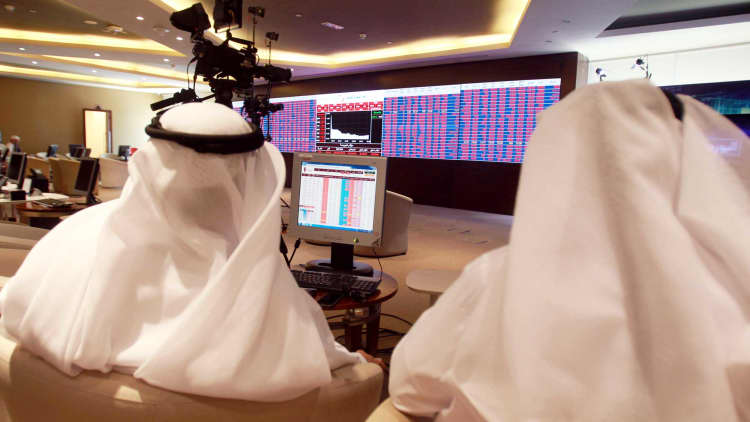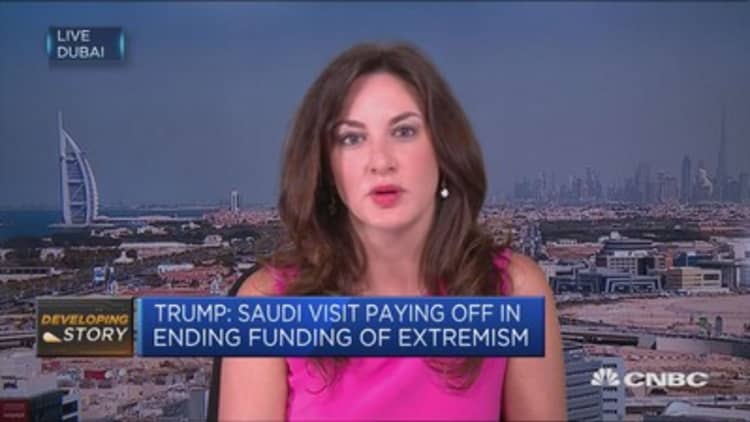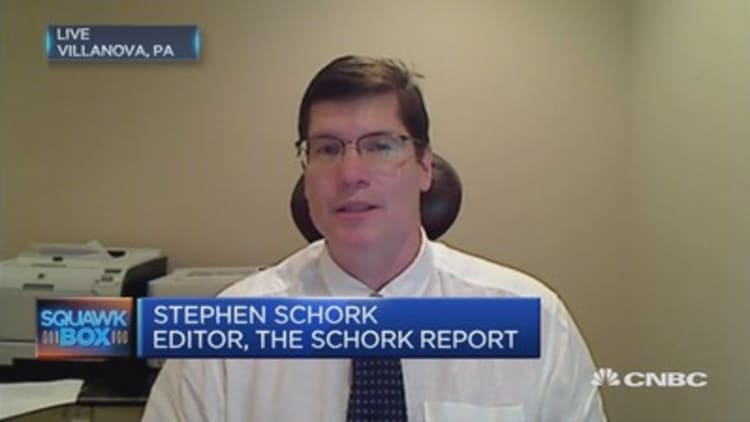
President Donald Trump is bringing "reality to the situation" in the Middle East by backing a Saudi-led coalition's tough stance against neighboring Qatar, said Sadad al-Husseini, a former executive at Saudi Arabia's state oil company.
Saudi Arabia, Egypt, the United Arab Emirates and other Muslim-majority nations cut diplomatic ties with Qatar on Monday, alleging the small Gulf monarchy supports terrorism. In a series of tweets Tuesday, Trump took partial credit and expressed support for the anti-Qatar alliance's actions, suggesting his tough remarks during a visit to Saudi Arabia two weeks ago spurred them on.
The tweets contradicted statements from White House officials and Secretary of State Rex Tillerson, who did not publicly take sides, sought to ease tensions and encouraged the parties to hold talks.
But Husseini, who now runs consultancy Husseini Energy, on Wednesday said Trump had focused attention on the risk posed to the Middle East energy industry by a lack of security and stability.
"This kind of situation is a way to maybe give Qatar a wake-up call that they need to work with the rest of the Gulf states to stabilize the region to try to undermine all the terror that's going on across the whole Middle East," the former Saudi Aramco executive vice president told CNBC's "Squawk on the Street."
There is substantial evidence that lax oversight has allowed terror financing to flourish within Qatar. Leaders in Doha also have supported al-Qaeda's Syria affiliate, the Al-Nusra Front, in its bid to unseat Syrian President Bashar Assad. Qatar also backs the Palestinian political and militant group Hamas and the international Islamist movement the Muslim Brotherhood, which Saudi Arabia and Egypt oppose.
But Saudi Arabia has also been accused of destabilizing the region through its intervention in Yemen's civil war, which has exacted a heavy civilian death toll.

The Saudi-led campaign has allowed al-Qaeda in the Arabian Peninsula and the Islamic State to carve out more territory in the region's poorest country, according to the International Crisis Group. Fighting extremists in Yemen is secondary for the Saudis, who are more concerned with restoring a friendly central government, the crisis-monitoring nonprofit added.
Saudi financing of organizations pushing a strict interpretation of Islam has also been criticized for fueling extremism around the world.
Trump himself called Saudi Arabia "the world's biggest funder of terrorism" in his 2011 book "Time to Get Tough: Making America #1 Again." He accused the kingdom of funneling U.S. money spent on Saudi oil "to fund the terrorists that seek to destroy our people while the Saudis rely on us to protect them."
Trump continued to criticize the Saudis on the campaign trail but has aligned with the kingdom as president, cutting a $110 billion arms deal and backing the Sunni Muslim power's strident stance against regional Shiite rival, Iran.
Many analysts believe the move to isolate Qatar is also an effort to punish Doha for making overtures to Iran and force it to conform with Saudi foreign policy. Both Trump and Saudi King Salman bin Abdulaziz Al Saud took a hard line against Iran during the president's meeting in Riyadh last month with Muslim leaders.

But Husseini on Wednesday sought to downplay Iran's role in the Gulf rift, saying the meeting focused on controlling the flow of money to terrorist organizations and getting every country to do its fair share.
"I think the current situation is one of putting a little more pressure on Qatar to try to get it to conform with the agreements that they arrived at just very recently in Riyadh," he said, referring to Qatari commitments to help disrupt financing.
White House press secretary Sean Spicer on Tuesday said Trump was "very heartened" by his "constructive conversation" with the emir of Qatar two weeks ago. Spicer said the emir had shown commitment to joining a new U.S.-Saudi initiative to disrupt terror financing.


